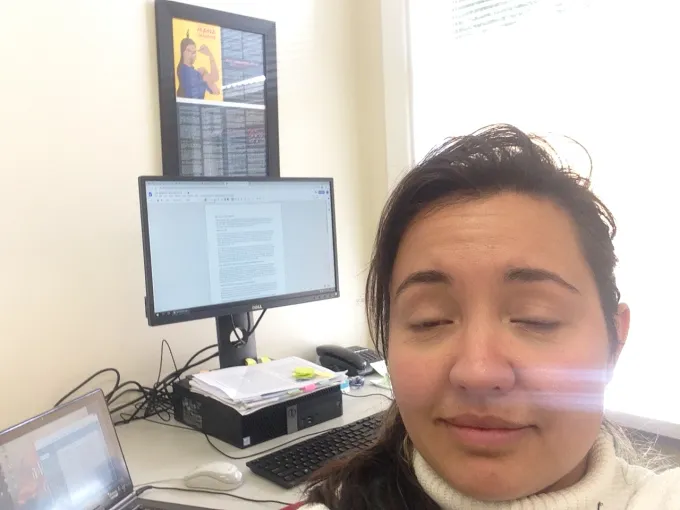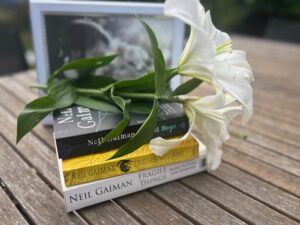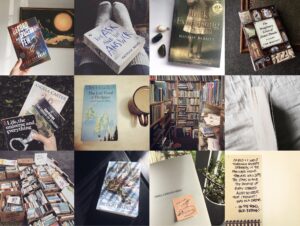Editing, editing, editing. The three ed’s and a bit of character development. You see a month or so ago, I had finally finished the manuscript of my YA fiction novel. The elation that I felt at that time, it was real. There I was, staring at that beautiful final sentence couched in clouds of a splendent white page. It was fantastical. It was fabulous. For a week or so.
Then it wore off.
Like most writers who are just starting out, I mistakenly believed that finishing a novel is the hardest thing in life. Bashing out those thousands of words day after day. Surely there’s nothing harder than that. All I knew was that I had finally joined the league of ‘extraordinary writers’ who’ve finished a BOOK. My ego swelling to hot-air balloon proportions. The Māori J K Rowling of Aotearoa here I come. After a week or so floating around in ‘I’m-a-famous-writer-already land’, I decided to start editing my ‘amazing’ novel.
‘Editing is hard work! It literally takes longer than writing the words in the first place.’
So, I began by rereading each sentence line by line and fixing grammatical errors. I also did some more character development and finessed the storyline. It was at this point that I realised how much more work this novel needed. It had seemed so good when I was bashing out words on a keyboard, but now I knew I was staring at just the beginning – the trainer-wheels stage – of a truly imaginative and enjoyable book for young adults. During this time, I also learnt something else. Editing is hard work! It literally takes longer than writing the words in the first place. To top things off, editing can sometimes make the writing even worse than it was in the first place.
In my opinion, there’s a fine line between editing and DESTROYING the work.
In the space of a couple of weeks, I edited the first two chapters and emailed them to my Te Papa Tupu mentor. Simon is a freelance editor and an excellent one at that. He knows how to take an average manuscript (unlike mine obvs) and somehow magically turn it into an enjoyable book with interesting characters and a storyline readers will love. Even so, it was a hard pill to swallow receiving his feedback with the central theme being – shock horror – that the characters in the story are too perfect.Too perfect? Too perfect! But they are perfect! ‘But why?’ I ask. ‘Why can’t the characters be perfect?’ Of course, Simon had a ready-made answer.
‘Perfect characters are boring. Imagine a perfect character.’
I screw my face up in disgust. You know the ones, the beautiful princess in the castle or the stunning model with the to-die-for wardrobe and wealthy parents. A photo of Kate Middleton taken just after she had given birth where she looked like she had played a gentle round of golf, done some yoga and then meditated instead of had a baby. Too perfect. Okay, point taken Simon the Wise. I don’t want my characters to be like that. But then, what do I want them to be like?
In search of devious ideas, I turn to those people around me (my whānau) who due to whakapapa have to pretend (sometimes unconvincingly) to care about my book and my questions. I start with my sister and the Studio Ghibli movie My Neighbour Totoro. ‘What do you think about perfect characters? Do you think Totoro (a furry, cute, giant forest spirit) has flaws?’ She suggests that Totoro doesn’t feature enough in the movie to really have flaws. I tell her about my predicament, the perfectness of the Patupaiarehe people in my novel. She reiterates Simon’s conviction about the annoyingness of perfect characters and begins to conjure up her own ideas of how the Patupaiarehe could become more three dimensional. ‘What if they are shy? What if they hide in the forest and don’t want to come out? They could be scared, terrified of the main evil guy.’ I love her ideas, and I gleefully realise something. Corrupting characters is actually quite fun.
The whānau that corrupts imaginary thought forms together stays together.
Next, I ask my mum (Mumma J). Mumma J loves Star Trek so I suggest that the Patupaiarehe might be a more ‘spiritually advanced’ race than humanity and therefore imperfection may not be as necessary. Now one thing about my mum, she doesn’t need any excuses to talk Trek. She launches into a detailed commentary of various characters on the Starship Enterprise and how they too possess their own imperfections. We return back to the task at hand. Corrupting the Patupaiarehe.
‘What if they are arrogant because they think they are better than humans?’ suggests Mumma J. I take this idea and run with it. ‘The Patupaiarehe could believe they are superior over humans and therefore always choose to put the forest and the animals first … which could lead to them risking the life of Pakū (a human boy) to protect themselves.’
I am mulling over these suggestions in my head when I receive an email from Simon. It reads, ‘Ngaro is a bit too healthy. Maybe he was tortured or is held by cruel bonds that are magically tied to be as painful as possible. This means Pakū will have to rescue him as well.’ To which I respond, ‘He should be broken both physically and mentally so Pakū has to help piece him back together … ooooooohhhhhh. This is good!’ This is so juicy. Together Simon and I have just mentally and physically harmed the imaginary thought-form named Ngaro in this book, allowing Pakū to further develop as a character.
My eyes glimmer lightly as I imagine having this much power in the real world. Mwahahaha.
But what this blog really highlights is the unexpected tedium of editing, challenges of character development and power of collective brainstorming to solve all problems. Which leads me into the single-handed best thing about being part of Te Papa Tupu: your mentor. Someone who gives a fuck about your book other than the ones that literally birthed you or are forced to care due to whānau/societal expectations.
Because to be honest, no one really gives a fuck about my book or your book or anyone else’s book as much as I do/the writer does.
Unless perhaps, you are Māori J K Rowling of Aotearoa. So, to have someone – an editor no less – who is giving their time to me and the book I wrote? Straight privilege.
Thanks, Te Papa Tupu.





